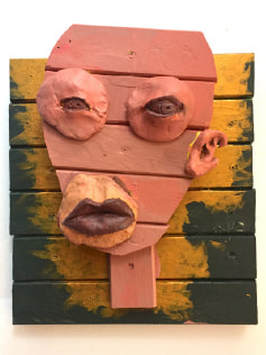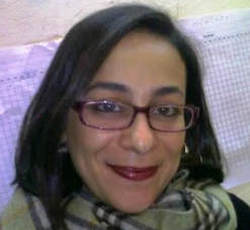
The “Development of Underdevelopment”
Offered By Dalia Wahdan
On Wednesday mornings from 10:00 am to 1:00 pm and evenings from 5:30 pm to 8:30 pm
Offered By Dalia Wahdan
On Wednesday mornings from 10:00 am to 1:00 pm and evenings from 5:30 pm to 8:30 pm
Progress and development have captured the imaginations of thinkers and world leaders for centuries. Inspired by a broad range of theories about the human condition from economic rationality to social and psychological evolution theories, the race towards progress has justified diverse, yet often times quite brutal policies not only in the advanced West but more so in the rest. Despite centuries of colonialism, peoples of once-colonized nations have emerged as
staunch advocates of western-style progress and development more than their colonial masters.
From building dams to strict birth control to neoliberal monetary policies; every post- colonial nation-state has struggled to catch up to the advanced west. Nevertheless, why do many countries remain in dire economic and demographic conditions even though they follow programs set by global development organizations? Why have development programs concocted by western ideologues produced diverse and nuanced underdevelopment instead?
This course provides a general history of development thought and a critical political economy analysis of change on a world-wide scale that situates events such as the Gulf War, the fall of Berlin Wall, the Rio Conference and the rise of the BRICS (Brazil, Russia, India, China and South Africa) within their larger historical contexts and critiques prevalent concepts of progress, growth, and under- development in an attempt to pave the way for alternative imaginations of
societal change.
The course works towards nurturing a critical approach to socio-economic change and the ideas that informed consecutive ‘development’ paradigms since the twentieth century. Readings and course activities will present and assess those paradigms within their respective political and economy contexts and historical conditions.
Learning Outcomes:
By the end of this course students will be able to:
1.Identify major theories of societal change
2.Explain the principles of international political economy
3.Assess development projects contextually
4.Identity the implications of development programs on human well being
staunch advocates of western-style progress and development more than their colonial masters.
From building dams to strict birth control to neoliberal monetary policies; every post- colonial nation-state has struggled to catch up to the advanced west. Nevertheless, why do many countries remain in dire economic and demographic conditions even though they follow programs set by global development organizations? Why have development programs concocted by western ideologues produced diverse and nuanced underdevelopment instead?
This course provides a general history of development thought and a critical political economy analysis of change on a world-wide scale that situates events such as the Gulf War, the fall of Berlin Wall, the Rio Conference and the rise of the BRICS (Brazil, Russia, India, China and South Africa) within their larger historical contexts and critiques prevalent concepts of progress, growth, and under- development in an attempt to pave the way for alternative imaginations of
societal change.
The course works towards nurturing a critical approach to socio-economic change and the ideas that informed consecutive ‘development’ paradigms since the twentieth century. Readings and course activities will present and assess those paradigms within their respective political and economy contexts and historical conditions.
Learning Outcomes:
By the end of this course students will be able to:
1.Identify major theories of societal change
2.Explain the principles of international political economy
3.Assess development projects contextually
4.Identity the implications of development programs on human well being
أسر فكر التقدم والتنمية خيال المفكرين وقادة العالم لوقت طويل. وقد برر السباق نحو التقدم لسياسات متنوعة، لكنها جميعًا تتصف بالقسوة عادةً، ليس في الغرب المتقدم وإنما في بقية العالم أيضًا، مستلهمًا نطاق واسع من النظريات عن الحالة اﻹنسانية بدءً من المنطق الاقتصادي إلى التطور الاجتماعي والنفسي. وبالرغم من عقود من الإستعمار، نهضت شعوب اﻷمم المستعمرة بصفتها مدافعة أصيلة عن نمط التقدم والتنمية الغربي أكثر من قادتها الاستعماريين.
عانت كل دولة-أمة ما بعد استعمارية من أجل اللحاق بالغرب المتقدم بدءً من بناء السدود إلى تنظيم النسل وحتى السياسات المالية الليبرالية الجديدة. ومع ذلك، لماذا تبقى العديد من البلاد في حالة اقتصادية وديموجرافية متردية مع أنهم يتبعون البرامج التي تضعها منظمات التنمية الدولية؟ لماذا تنتج برامج التنمية المستحدثة من اﻷيدولوجيات الغربية تخلفًا متنوعًا ومتباينًا؟
يقدم هذا المساق تاريخًا عامًا لفكر التنمية وتحليلاً اقتصاديًا سياسيًا نقديًا للتغيير على النطاق العالمي التي تضع أحداث مثل حرب الخليج وسقوط حائط برلين ومؤتمر ريو دي جانيرو وصعود دول البريكس (البرازيل وروسيا والهند والصين وجنوب أفريفيا) في سياقات تاريخية أكبر، وينتقد المساق المفاهيم المستقرة للتقدم والنمو والتخلف في محاولة من أجل تمهيد الطريق لتخيلات بديلة للتغير الاجتماعي.
يعمل المساق على تغذية المقاربة النقدية للتغيير الاجتماعي الاقتصادي واﻷفكار التي أسست نماذج "التنمية" المتعاقبة منذ مطلع القرن العشرين، وستقيم قراءاته وأنشطته تلك النماذج في سياقات سياسية واقتصادية وظروفها التاريخية لكل منهم بعد تقديمها إلى الطلاب.
أهداف المساق:
بنهاية هذا المساق سيصبح الطلاب قادرين على:
التعرف على النظريات العظيمة للتغيير الاجتماعي
شرح مبدأ الاقتصاد السياسي العالمي
تقييم المشروعات التنموية في سياقاتها
معرفة آثار برامج التنمية على رفاهية اﻹنسان

Dalia Wahdan is an anthropologist who is deeply interested in the ‘urban’ particularly the perennial dialectics of man and nature. She holds a Ph.D. from Pune University, India and a Masters from the American University in Cairo. The Masters’ thesis was an examination of spatial inequities manufactured and sustained by the construction of new urban settlements in Egypt and the doctoral dissertation was a comparison of the privatization of road networks and their implications on physical mobility in the national capital region of Delhi and greater Cairo region. She is a firm believer in liberal learning and education and has taught at the Foundation for Liberal and Management Education (FLAME University) in India, at the Centre for the Study of Law and Governance of Jawaharlal Nehru University (India) and the School of Public Administration of the American University in Cairo. She loves to wander into landscapes and observe how humans imagine and possibly create spaces of freedom within and against their mortal predicaments.
داليا وهدان: عالمة أنثروبولوجية منغمسة في البيئة الحضرية واستمتع باﻹشتباك مع طريقة خلق السلطة والفاعلين للمساحة والتحكم فيها وملائمتها، وفي أحيانٍ أخرى عن طريق مشاهدتها عن بعد. أتعلم وأشارك ما فهمته مع طلابي وصناع السياسات واﻵخرين في الفصول الدراسية والوزارات واللقاءات اﻹجتماعية.

